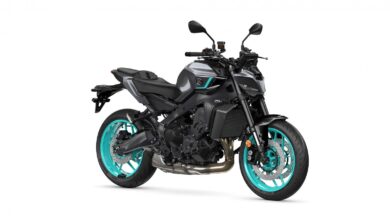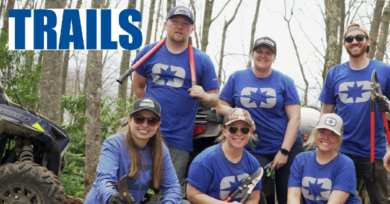Bombardier sells division
A group of investors comprised of the Bombardier family and two investment groups has won the bidding to purchase Bombardier Recreational Products for $1.225 billion (Canadian), beating out the next closest group by about $225 million (Canadian).
The investment group that reached an agreement in principal to purchase the recreational business from Bombardier, Inc., is led by Bain Capital and includes the Bombardier family and the Caisse de dépôt et placement du Québec, a Canadian fund manager. Completion of the transaction is subject to certain conditions, execution of final documentation and approval by governmental authorities. It is expected that the transaction will be closed in the next two months.
Bain Capital, a U.S. company with offices in Boston, New York and San Francisco, will hold 50% of the new corporation, the Bombardier family 35% and Caisse, 15%.
Bain Capital, which has more than $23 billion (Canadian) in assets under management, has strong experience in a variety of industries in which non-core businesses or assets of corporations are purchased by private investors. With a 19-year investment history, the firm has made a number of investments in retail and consumer products companies, including Sealy, Domino’s Pizza and Staples. Representatives of Bain were not available for comment on the move. The company also has experience in manufacturing and retailing. It has investments in companies such as GT, a manufacturer and distributor of mountain bikes and parts; The Sports Authority, a retailer of sporting goods and activewear; and Accuride, a manufacturer of steel wheels for OEM truck and trailer companies.
The Caisse de dépôt et placement du Québec is a financial institution that manages funds for public and private pension and insurance plans. Through CDP Capital, the leading fund manager in Canada with almost $130 billion (Canadian) of assets under management, it invests in the main liquid markets as well as in private equity and real estate.
Bombardier Recreational Products designs, develops, builds, distributes and markets Sea-Doo watercraft and sport boats, Ski-Doo and Lynx snowmobiles, Johnson and Evinrude outboard engines, Evinrude direct injection and Evinrude E-TEC technologies, Bombardier ATVs, Rotax engines and karts, as well as utility vehicles.
The transaction all but completes Bombardier’s action plan presented on April 3, 2003, to restore the company’s liquidity by selling off key assets.
Meanwhile, Bombardier said the Recreational Products division had sales of $492.1 million (Canadian) for the second quarter ended July 31, 2003, off from $500.4 million in the same period last year. Recreational Products lost $2.8 million (Canadian) in the second quarter, compared to earnings of $24.7 million (Canadian) in the same period last year, largely because of a shift in timing of sales costs, the company said.
Paul Tellier, Bombardier’s chief executive, told a news conference that Pierre Beaudoin will remain as head of Bombardier Aerospace. Some thought that Pierre Beaudoin might go back to managing the Recreational Products division he previously ran. “That was a bit of a surprise,” said one securities analyst.
The Recreational Products management team is in place and no changes are seen at this time, assuming that Beaudoin doesn’t move from Aerospace. Michel Baril is president and chief operating officer of the business, a post he has held since Feb. 2001. He joined the Bombardier corporation in 1979.
Tellier also said the issue of whether the recreational products division will retain the Bombardier name is still under negotiation. However, another Bombardier official noted it would not be unusual for both companies to use the Bombardier name. “It’s been done before,” he said, “in the cases of Volvo and Rolls Royce, for example.”
The 50/50 ownership structure is somewhat unusual, say investment analysts. “Usually one partner insists upon control,” says a Canadian securities analyst who follows Bombardier. “In a partnership, each one would want some protection going forward. One of the worst investment situations is where you have a 30%-40% position but no control. The three parties will have to agree on things; we’ll have to wait and see.”
It’s not likely that the partnership would break up Recreational Products, as sometimes happens when a business unit is spun off. It’s more likely, say observers in the investment community, that Bain would try to build up the business, especially on the ATV and Evinrude/Johnson sides, and then take the entire business public through an IPO.




